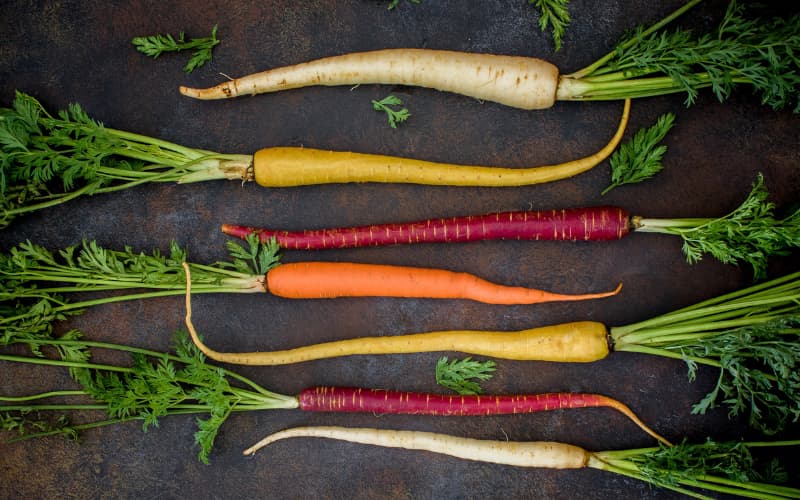
Categories
Why Organic Food Isn’t Always Best
If organic means produced and prepared ‘naturally’, I’m all for it. Intuitively it makes sense to me that food eaten in season, that is organically grown or reared, by local producers, is going to be better for us, better for the animals involved, and better for the environment.
The problem is that it’s not that straight forward. Once you start to look at the guidelines for organic and free range for example, you’ll begin to discover that there’s lots of red tape and tick box stuff involved in labelling foods organic and free range and it’s not always what you might assume it is.
Origin over organic
I think it’s more important that you know where you food has come from, rather than just rely on the label or certification. You know exactly what you’re eating then, which is something I think we should all be concerned with.
I’d take grass fed meat over ‘certified organic’ meat for example. Surely, an animal that has been allowed to roam freely and eat grass is going to be better for us (not to mention the animal) than one that’s got just enough space to meet the minimum requirements and is reared on a diet of organic grain?
My hierarchy for making food choices would be:
- Whole foods
- Grass fed
- Local, seasonal
- Certified organic
- Free range
- Commercially reared
Number one is curve ball, but I don’t always think that organic is necessarily the most important thing to concern yourself with if you eat a diet that is made up of processed crap. I see people eat a lot of products labelled ‘organic’ (‘gluten free’ is another one) that are full of shit. Organic or not, it’s still shit.
Organic impostors
Basic nutrition comes before any labels and certifications. Organic cornflakes don’t trump eggs for breakfast for example. Most people would do better with the fats and protein from the egg, regardless of the source. Organic would be better still, but choose the right foods first.
I’m lucky enough to live somewhere where the butchers sell meat that is reared on a local farm. The meat isn’t certified organic, but it’s grass fed and organically reared. You can even visit the farm if you want to, which I have to admit, I’m sad enough to have done.
We also have greengrocer that sells predominantly local produce. Again, the local stuff is not certified organic, and my kids do eat bananas year round which is hardly ‘local’, but they can tell you exactly where the local stuff comes from and how it’s produced.
I chose to buy locally. When I do buy other than local foods I go organic where possible, prioritising the requirement for them to be organic as follows
- Animal protein
- Dairy
- Eggs
- Fruits and vegetables
- Grains and legumes
It’s very rare that I eat anything other than organically reared or produced meat and dairy produce. Fruits, veg and grains I’m a bit more relaxed about. I just wash these thoroughly and soak my grains and legumes before cooking when I can.
We help our members with a nutritional programme that works for them, if you’re struggling, give us a shout at our gym or try out our personal training in London and we’ll help you work out a plan that suits you.
Related Articles
- Are Superfoods Actually Inhibiting your Fat Loss Goals?
- Some Basic Food Shopping Guidelines
- Beware Food Labels
- What Food Stage Are You At?
- 10 Things I Learned Watching Food Inc.


